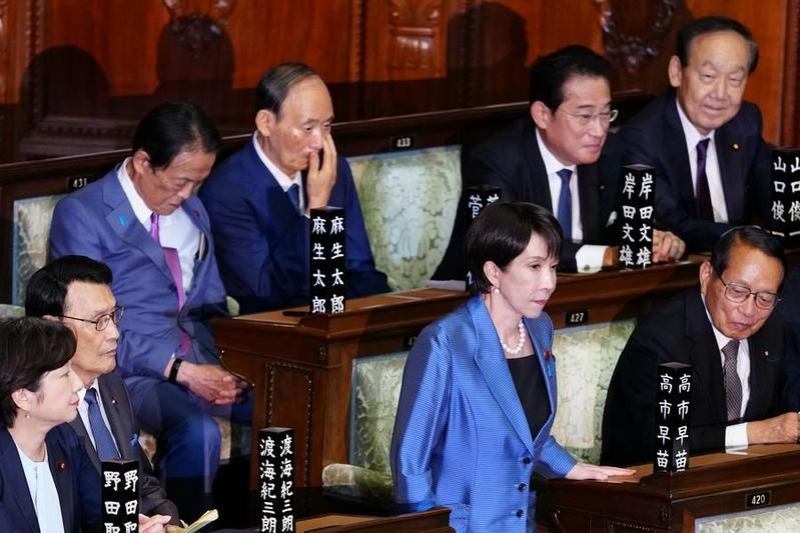More knowledge about CPC, less misjudgment


Editor's Note: The Communist Party of China, which is celebrating the centenary of its founding this year, has led the Chinese people to make great achievements and stayed true to its original mission of realizing national rejuvenation, while endeavoring to build a community with a shared future for mankind and maintain global peace and stability. Three experts share their views on the issue with China Daily. Excerpts follow:
The US and China are embroiled in a contest that could become more wide-ranging and intense than any other competition between two countries in modern history.
The Communist Party of China's official line is that bilateral ties should be guided by the principle of "no conflict, no confrontation, mutual respect, and win-win cooperation," as President Xi Jinping said in his first telephone conversation with US President Joe Biden in February.
Better understanding the diverging views of recent history would help the two countries find a way to manage their competition and avoid a devastating conflict that no one wants.
Momentum is with China
It is not difficult to understand why US officials see China as a rival. Most analysts estimate that by the end of 2021, China's GDP will be equivalent to about 71 percent of the United States'. In comparison, in the early 1980s, during the Cold War, the Soviet Union's GDP was less than 50 percent of the US'. Also, China has replaced the US as the largest destination for foreign investment, making Americans feel that in the US-China contest, the momentum is with the latter.
In the US, China's rise is a source of neuralgia and anxiety. By contrast, in China, the country's growing status is a source of confidence and pride. "As the world faces unprecedented turbulence," Xi, who is also general secretary of the CPC Central Committee, told a group of high-ranking CPC officials in January, "time and momentum are on China's side".
In March, Yang Jiechi, a member of the CPC Central Committee Political Bureau, made headlines at a contentious high-level US-Chinese meeting in Alaska for rebuking the American officials for speaking to their Chinese counterparts "in a condescending way" and asserted that "the United States does not have the qualification… to speak to China from a position of strength".
During the past year, China's confidence has been buoyed by a series of stark contrasts with the US. By June, the US death toll in the COVID-19 pandemic was nearly 600,000, whereas in China-with a far larger population-fewer than 5,000 had fallen victim to the pandemic. Also, mass shootings, police brutality, and urban unrest have greatly increased in recent years in the US, which are almost unheard of in China.
Culmination of election chaos on the Capitol
Besides, the controversy surrounding the 2020 US presidential election, culminating in the Jan 6 assault on the Capitol by rioters attempting to overturn previous president Donald Trump's defeat, reflected the high degree of social and political instability in the US. Against this backdrop, many Chinese analysts have highlighted the political dysfunction, economic inequality, ethnic and racial divisions, and economic stagnation that plague the US and other Western democracies.
They also emphasize that many developing and former socialist countries that tried to emulate Western development models are not in a good shape, and Afghanistan and Iraq, the two countries which the US invaded to spread democracy and promote development, are mired in poverty and internecine wars.
Hence, many Chinese people feel justified in countering the US rhetoric and puncturing its triumphant pride.
In particular, Chinese officials are irritated by the US' meddling in some regions of China. The CPC believes the US' attempts to destabilize China are part of a strategy to split China and prevent it from becoming a great power. The CPC also thinks the US' interference in China's internal affairs will help it prepare a blueprint to undermine and eventually topple the Party.
The Party's concern over US meddling in China's internal affairs is directly connected to the rising tensions between Washington and Beijing on a range of geopolitical issues, including territorial disputes in the South China Sea and finger-pointing over the origin of the novel coronavirus.
China's increasingly assertive posture in these disagreements is in part a reaction to the Party's belief that the US is trying to weaken the country and delegitimize the Party. The message is clear: China will not be intimidated.
The US-China relationship revolves around two orders: the internal order that the CPC maintains in China and the international order that the US wants to lead and sustain. Until the current downward spiral in bilateral relations began in 2017, Washington and Beijing had adhered to the understanding that the US will not attempt to destabilize China's internal order and, in turn, China will not do anything to weaken the US-led world order.
This understanding helped the two sides to expand their trade and economic links to the point of becoming interdependent. The two sides also started to coordinate and cooperate on various global issues, such as fighting terrorism and climate change. This understanding has now unraveled, and the fear of a vicious circle looms.
To avoid an open conflict, leaders in Washington and Beijing need to accept two fundamental realities. First, the CPC enjoys immense popularity among the Chinese people and its governance is unshakable, so external pressure on China to change its political system will prove futile and may even backfire. And second, the US will remain the most powerful actor in shaping the world order.
Many countries may be frustrated with Washington's hypocrisy and flagging leadership, but few genuinely wish to see the US completely withdraw from their region and leave behind a power vacuum.
An approach of 'mutual respect'
Given these realities, the two countries should abide by what the Chinese have long referred to as an approach of "mutual respect". They should continue to compete in many areas-which government serves its people better, which country will recover sooner from the COVID-19 pandemic and keep its citizens healthier, which country is more popular in the world, and so on.
To prevent the bilateral competition from becoming catastrophic, two issues require special attention. The first is Taiwan. The CPC regards Taiwan as central to the country's sovereignty and territorial integrity, while the US views Taiwan through the lens of its "international obligations and security interests". Both, however, share a common interest: maintaining peace.
The second crucial issue is US-China economic competition. The two economies have become so deeply intertwined that economic and technological decoupling will result in huge losses and uncertainties for both sides.
Beijing is focusing on innovation and economic self-reliance at a time when Washington is grappling with rising populism, which was clearly evident in Trump's "America first" strategy and partly in Biden's "foreign policy for the middle class". Both sides are eager to sharpen their economic competitiveness and increase their advantages. But neither will thrive unless both fully recover from the pandemic.
Raising consumption to boost economy
China needs to deepen reform to increase foreign trade and investment, and invite technological know-how, which is what the new "dual circulation" development paradigm is all about. Spurring domestic production and consumption, the thinking goes, will encourage foreign businesses to rely more on China's industrial supply chains and market and foster what Xi calls an "open world economy".
Embracing international economic integration will in turn buttress China's internal order, because the country might adjust some of its rules to adapt to international rules to derive benefits for its economy, accelerate social progress, and better protect the environment.
The US on its part should reconsider the possible consequences of buttressing the existing world order. A truly liberal order would be more inclusive and take into consideration the values and interests of non-Western societies beyond Washington's circle of like-minded partners. And the failures of US interventions in Afghanistan and the Middle East should serve as a sobering reminder to Washington of the limits of its power.
This is an excerpt from his essay titled, "How Beijing Sees the New Washington Consensus" on chinausfocus.comThe views don't necessarily reflect those of China Daily.
- Rejecting Western powers' clique-building is in the long-term interests of all countries: China Daily editorial
- Western media misinterpret 'one country, two systems'
- CPC driving force of China's remarkable achievements
- China takes forward the human rights cause
- Xi's July 1 remarks resonate with 1.4 billion people

































